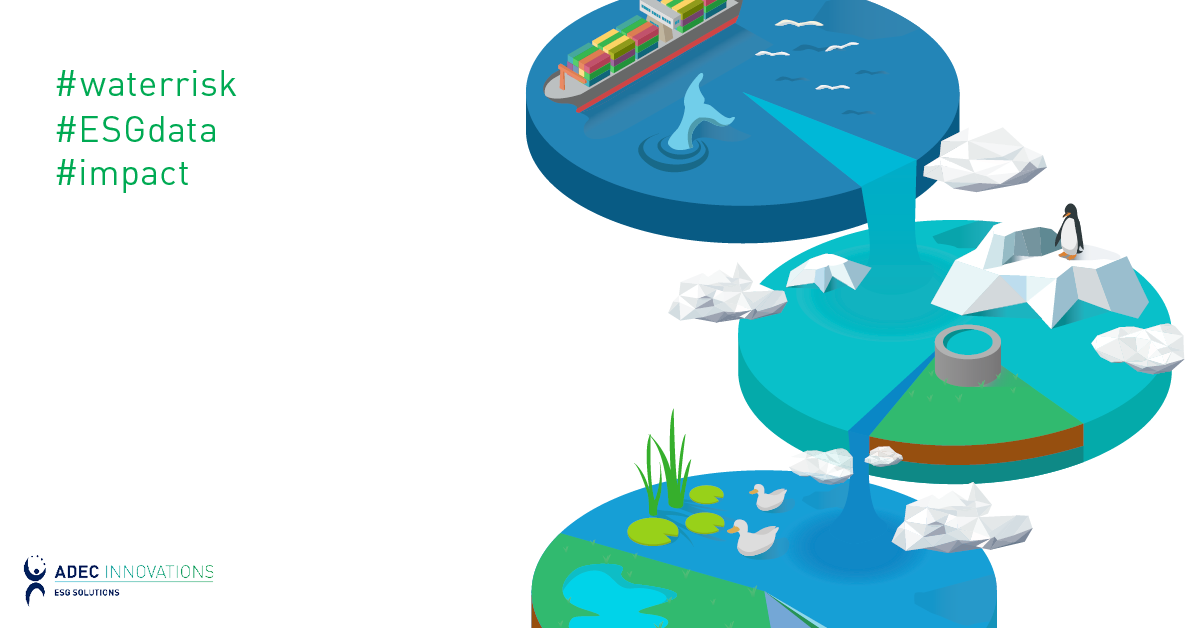How Does Your Company Manage its Water?
World Water Day, celebrated every March 22, is an international opportunity to learn about water-related issues and provide information, inspiring others to take action and ignite change. Water is used in every business, and can directly affect supply chain operations. Water issues put pressure on large and small organizations around the world. Since water is a vital and increasingly limited resource in numerous parts of the world, its management should be given enough emphasis to reduce risk and avoid future complications.

By Alicia Godlove
July 6, 2016
World Water Day, celebrated every March 22, is an international opportunity to learn about water-related issues and provide information, inspiring others to take action and ignite change.
Water is used in every business, and can directly affect supply chain operations. Water issues put pressure on large and small organizations around the world. Since water is a vital and increasingly limited resource in numerous parts of the world, its management should be given enough emphasis to reduce risk and avoid future complications. It should be managed both for instant needs and for long-term economic and environmental sustainability.
Water management is the control and movement of water resources to minimize damage to life and property, and to maximize efficient beneficial use. It is also the operation of water resources following a set of rules and regulations. It forces us to raise questions that may confront short-term business tactics in order to ensure long-term, sustainable gain.
Are you damaging your water resources and placing your business at risk in the future? What does your water depend on? How fast are you using up your resources?
Here are a few tips on how your company can manage your water:
-Research water-related risksThere are different types of major and minor water management risks:
operational - storms and drought, plus other weather events, might be the reason for interruption in operations
regulatory - due to firmer regulations, water-quality standards may be greater and costs linked to treatment may rise
reputational - local access to clean water and marine ecosystems can be affected by business operations, which may bring about negative publicity.
Facility operations should be evaluated in terms of water management. This involves inspecting ventilation, pumps, heating and cooling materials. If some controls need improvement, it is best to update them as soon as possible.
-Use efficient equipmentCost-effective equipment is an important part of a sustainable water plan. It may optimize resource use and reduce costs in the long run.
Water management experts can help improve your water conservation efforts, which is essential for a company’s success. The main objective of water management is: “clean water in, sustainable water out.”
FirstCarbon Solutions (FCS) advances sustainable practices around the world, offering fully integrated consulting, software and data management services. With expertise in Water Management for industry and governments, we develop cost-effective solutions to help businesses recognize sustainability as a main driver for practices and regulations, and integrate sustainability into their daily operations. To stay current on global sustainability trends and to learn more about global water issues, subscribe to our monthly newsletter, GreenWatch.
Related Articles
Water/Oceans
By Brian Amdur on January 6, 2022
Water/Oceans | Water Risk Assessment
By Hunter Donovan on March 17, 2020
Climate Change | Water/Oceans
By Hunter Donovan on August 29, 2019
Sustainability | FCS | Water/Oceans | blue economy | biodiversity
Be a sustainability leader.
Our team supports you no matter where you are on your Sustainability Journey. Talk to us today to learn more.





